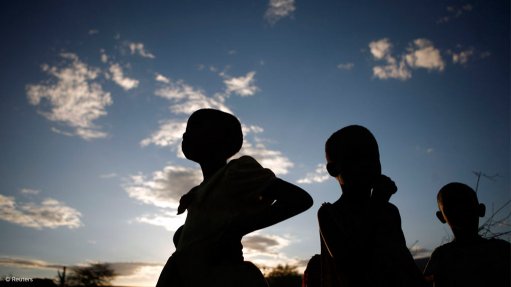
Photo by: Reuters
Covid-19 pandemic increased the vulnerability of children and their families across the world. In South Africa, researchers tracked child and family well-being over the course of the pandemic. Despite some positive improvements in reducing child hunger and caregiver depression levels; child well-being remains fragile as families continue to face economic safety and protection risks.
This is among the findings of a research study by the Centre for Social Development in Africa (CSDA), at the University of Johannesburg (UJ). The longitudinal study, titled “How well are children faring?” assessed child well-being and tracked 123 children in their foundation years (Grade R – 3) from five schools in disadvantaged areas in Johannesburg. The study covered three years from the start of Covid-19 in 2020 until the end of the pandemic in 2022.
The research reveals that children and their caregivers have made significant recoveries since the start of the pandemic. “There has been significant progress in reducing child hunger and caregiver depression levels, improved responsiveness to children’s health needs and better school participation since 2020,” explains lead researcher, Leila Patel, Distinguished Professor at the CSDA.
However, challenges remain, 60% of children still face economic risks to their well-being and 62% face risks to their safety, protection and care, the research found.
The study is novel because it generates data that doesn’t exist elsewhere. It gives a complete picture of child well-being across five areas critical to their development that could guide social interventions such as accessing support from social workers, health and nutrition screenings and school feeding programmes. It brought together leading researchers, practitioners and organisations in a Community of Practice (CoP). The aim is to find breakthrough solutions that could improve their well-being by bolstering the social support systems around them and providing tailored and integrated health, education, mental health and welfare services to children and families at risk.
“What is notable about the study is that it tracks the impact of the pandemic on children and families. Although we have come far since 2020, we have also observed that many of the problems they face have ‘hardened’ over time. In some cases, the gains made before the pandemic were reversed and in the recovery period, these have not been fully regained. We see a ‘stickiness’ to these challenges that will be difficult to shift,” explains Prof Patel.
The study was built on a large body of research that shows that dedicated investments in children and their families in the early years of schooling are crucial to a long, productive, and happy life. The research provides a window into the lives of children and their families in South Africa and the difficulties they face.
“The data speaks for itself. It shows how they are affected by multiple and overlapping crises with lasting consequences if not addressed. These issues need to be uppermost in the minds of policymakers as they make policy choices, especially in a constrained fiscal environment,” says Prof Patel.
Report by the Centre for Social Development in Africa, at the University of Johannesburg